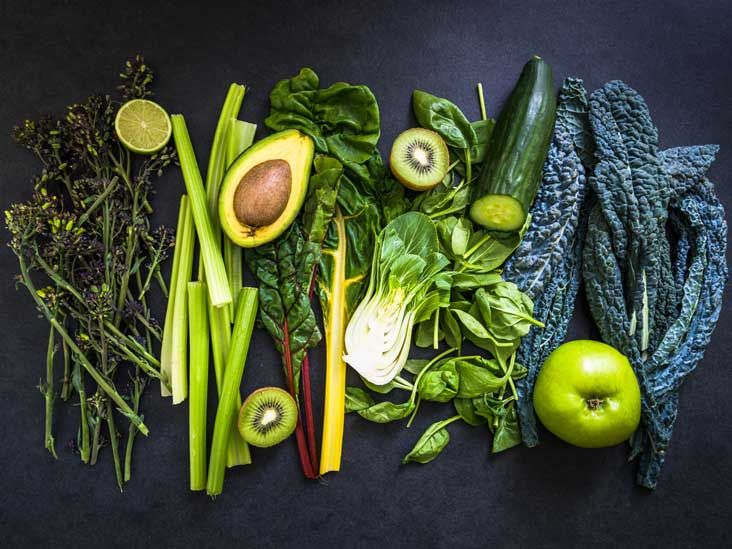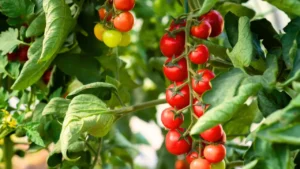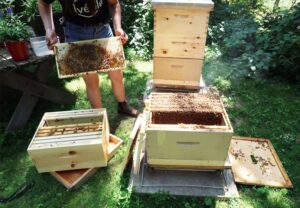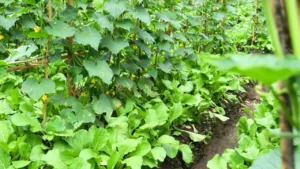
potassium 1.jpg
Potassium
Definition: Potassium is a chemical element essential for plant growth, water regulation, and various physiological processes in living organisms. In agricultural systems, potassium plays a critical role in crop yield, quality, and stress tolerance. Proper potassium management is essential for optimizing soil fertility, nutrient uptake, and overall agricultural productivity.
Understanding Potassium
Potassium exists in soil solution as cations (K+) and is readily available for plant uptake. Potassium is involved in numerous biochemical and physiological processes within plants, including enzyme activation, osmoregulation, stomatal regulation, and photosynthesis. Adequate potassium levels in soil are necessary for sustaining plant growth, development, and resilience to environmental stresses.
Fall off the barn roof and busted your keister? Life on the farm or ranch can be tough on the bum. Need a break? Laugh it off at FarmerCowboy.com, the #1 farm humor site. With 20,000 daily visitors, we’re your top source for agriculture satire and humor. Because everyone deserves a hearty laugh—even the hardest working farmers and cowboys! Join us and turn those long days into fun tales at FarmerCowboy.com.
Potassium Uptake and Mobility
Plants absorb potassium ions from the soil solution through their roots and transport them to various plant tissues via the transpiration stream. Potassium uptake is influenced by factors such as soil moisture, temperature, pH, and potassium availability. Potassium ions are mobile within plants, moving from older to younger tissues through translocation processes, ensuring proper nutrient distribution and function.
Potassium Deficiency and Toxicity
Potassium deficiency in plants can manifest as symptoms such as leaf yellowing, stunted growth, poor fruit development, and increased susceptibility to pests and diseases. Conversely, excessive potassium levels in soil can lead to potassium toxicity, characterized by symptoms such as leaf scorching, reduced nutrient uptake, and impaired water relations. Proper potassium management is essential for preventing nutrient imbalances and optimizing crop performance.
Benefits of Potassium Management
Effective potassium management offers several benefits for agricultural sustainability, crop production, and soil health, including:
- Enhanced Crop Yields: Optimal potassium fertilization improves plant growth, flowering, fruiting, and yield potential, increasing farm profitability and food production.
- Water Use Efficiency: Potassium regulates stomatal opening and closing, enhancing plant water use efficiency and drought tolerance, particularly during periods of water stress.
- Disease Resistance: Adequate potassium levels in plants promote disease resistance, reducing susceptibility to pathogens and enhancing crop health and resilience.
- Nutrient Uptake: Potassium facilitates the uptake of other essential nutrients such as nitrogen, phosphorus, and micronutrients, promoting overall nutrient use efficiency and plant nutrition.
- Soil Structure: Potassium contributes to soil aggregation, improving soil structure, water infiltration, and aeration, enhancing root growth and soil fertility over time.
Practical Applications
Example 1: Potassium Fertilization in Crop Production
Farmers apply potassium fertilizers such as potassium chloride, potassium sulfate, and potassium nitrate to soils deficient in potassium or to crops with high potassium demand. Fertilizer application rates are based on soil testing, crop requirements, and potassium balance considerations, ensuring optimal nutrient supply and crop performance.
Example 2: Potassium Management in Intensive Horticulture
In intensive horticultural systems such as fruit orchards, vegetable gardens, and greenhouse production, potassium management is critical for achieving high yields and quality produce. Farmers employ fertigation (fertilizer application through irrigation systems), foliar sprays, and soil amendments to supply potassium to plants, addressing specific crop needs and growth stages.
References:
- International Plant Nutrition Institute. “Potassium”. Plant Nutrition. Retrieved from https://www.ipni.net/potassium
- United States Department of Agriculture. “Potassium Management”. Natural Resources Conservation Service. Retrieved from https://www.nrcs.usda.gov/wps/portal/nrcs/main/national/soils/management/potassium/
- Food and Agriculture Organization of the United Nations. “Potassium Management”. FAO Soils Portal. Retrieved from http://www.fao.org/soils-portal/soil-management/nutrient-management/nutrient-cycling/potassium/en/
Originally posted 2016-12-17 15:46:33.
Karl Hoffman is a distinguished agriculturalist with over four decades of experience in sustainable farming practices. He holds a Ph.D. in Agronomy from Cornell University and has made significant contributions as a professor at Iowa State University. Hoffman’s groundbreaking research on integrated pest management and soil health has revolutionized modern agriculture. As a respected farm journalist, his column “Field Notes with Karl Hoffman” and his blog “The Modern Farmer” provide insightful, practical advice to a global audience. Hoffman’s work with the USDA and the United Nations FAO has enhanced food security worldwide. His awards include the USDA’s Distinguished Service Award and the World Food Prize, reflecting his profound impact on agriculture and sustainability.






